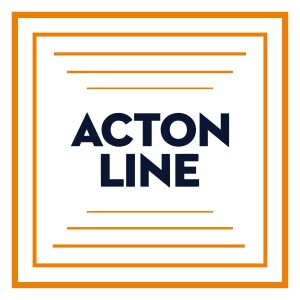
Since debuting in the New York Times Magazine on August 14, 2019, the 1619 Project has ignited a debate about American history, the founding of the country and the legacy emanating from the nation’s history with chattel slavery.
The project’s creator and editor, Nikole Hannah-Jones, has described the project as seeking to place “the consequences of slavery and the contributions of black Americans at the very center of our national narrative.” Components of a related school curriculum have been adopted in major cities like Chicago, Washington, D.C., and Buffalo, New York. For her work on the project, Hannah-Jones was awarded the 2020 Pulitzer Prize for Commentary.
But the project has also come in for heavy criticism from historians and economists of all political and philosophical persuasions for inaccuracies in "matters of verifiable fact” in history and economics. In response to these critics, Hannah-Jones just recently declared the project not a work history, but instead a work of journalism.
One of the project’s most frequent critics is Phil Magness, Senior Research Fellow at the American Institute for Economic Research.
On this episode, Phil Magness discusses the objectives of the 1619 project, the economic history of slavery, the project’s historical errors and why many Americans seem to have such a difficult time accepting the complicated totality of our own history.
Phillip W. Magness at the American Institute for Economic Research
The 1619 Project - The New York Times Magazine
The 1619 Project: A Critique - Phil Magness
Public Schools Are Teaching The 1619 Project in Class, Despite Concerns From Historians - Reason
Karl Marx: Intellectual father of the 1619 Project? - Rev. Ben Johnson
The 1619 Projection: 3 lies Pulitzer should not reward - Rev. Ben Johnson
Hosted on Acast. See acast.com/privacy for more information.
More Episodes
 2021-06-23
2021-06-23
 2021-06-09
2021-06-09
 2021-06-02
2021-06-02
 2021-05-19
2021-05-19
 2021-05-12
2021-05-12
 2021-04-14
2021-04-14
 2021-03-24
2021-03-24
 2021-03-17
2021-03-17
 2021-03-10
2021-03-10
 2021-02-24
2021-02-24
 2021-02-17
2021-02-17
Create your
podcast in
minutes
- Full-featured podcast site
- Unlimited storage and bandwidth
- Comprehensive podcast stats
- Distribute to Apple Podcasts, Spotify, and more
- Make money with your podcast
It is Free
- Privacy Policy
- Cookie Policy
- Terms of Use
- Consent Preferences
- Copyright © 2015-2024 Podbean.com





